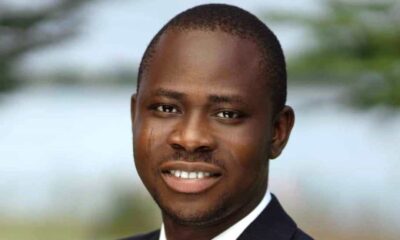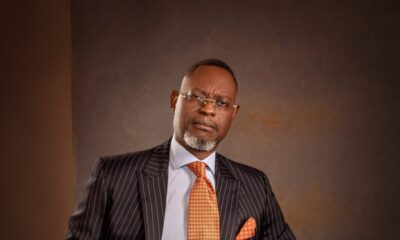Health
COVID-19: LASG Blows Hot, Warns Resident Against 4th Wave


Lagos State Government has warned of a possible fourth wave of COVID-19 infection in the country, identifying the volume of inbound passengers arriving the State for Christmas and New Year festivities, low vaccination and the anticipated social activities in the festive season as potential triggers.
The Commissioner for Health, Prof. Akin Abayomi, who disclosed this at a press briefing on the Lagos State COVID-19 response and mass vaccination strategy noted, however, that the Lagos State Government is currently implementing strategies to prevent and mitigate a possible fourth wave of COVID-19 infection.
He explained that four-pronged strategies are being employed including vaccination strategy, testing strategy, management of inbound passengers of interest into the country and managing social events during the festive season to prevent and mitigate a potential fourth wave.
The Commissioner disclosed that Lagos currently has 2.67% of its population vaccinated with two doses of the COVID vaccines, adding that the State hopes to administer eight million doses of COVID vaccines to four million people by the 25th of December this year.
Abayomi noted that the State Government, as part of its vaccination campaign mandate and approach, is partnering with the private sector to rapidly ramp up COVID-19 vaccination, stressing that the areas of collaboration include leveraging on the private sector resources on administration, logistics, distribution, pharmacovigilance and technology.
The Commissioner explained that the administration of COVID-19 vaccines remain free in public health facilities, stating that citizens may be required to pay an administrative fee of N6,000 for two doses of the vaccines in private health facilities as an alternative choice for interested persons.
He noted that those who prefer to receive the COVID-19 vaccines at private health facilities are not paying for the vaccines, but instead will be paying only an administrative charge to the private facilities for resources and technology deployed in the administration.
“Let me just for the point of clarity say that we are not charging for the vaccine; the vaccine has been given to us by the Federal Government free. We are just charging and covering the cost of the logistics and the overheads of the private sector that has been brought in under the oversight of the government to make sure that we increase the number of vaccination sites across Lagos, and make sure that every citizen of Lagos can easily access a location where they can get a free vaccine at a modest fee for vaccine administration”, Abayomi said.
While noting that the waves of COVID-19 experienced in Lagos State have been caused by seasonal increase and influx of inbound passengers from other countries into Lagos, the Commissioner disclosed that the State government is poised to strictly enforce the new international travel protocols and guidelines for vaccinated and unvaccinated inbound passengers.
Abayomi explained that the State government promulgated the Lagos State Infectious Disease Regulation 2020 and the Lagos State COVID-19 law of 2021 in response to the global pandemic, stating that prosecution of defaulters and erring citizens in mobile courts will be swift.
According to him, categories of possible offences listed in the COVID law and regulations include failure to isolate as per guidelines, failure to present for COVID PCR testing on designated days, providing false information, presenting fake PCR or vaccination certificates, breaking the rules of physical distancing at gatherings, creating super spreader events and corporate entities undermining the integrity of the State response.
-



 GRPolitics4 days ago
GRPolitics4 days agoWhat the 2026 FCT Elections Reveal About Nigeria’s Democracy
-



 Energy2 days ago
Energy2 days agoSenegal Revokes Nigerian Billionaire Arthur Eze’s Offshore Oil Licence
-



 Transport4 days ago
Transport4 days agoAfolabi Hails Customs CG on His Birthday
-



 GRPolitics2 days ago
GRPolitics2 days agoAPC e-Registration Intensifies in Enugu as Nomeh Ward Flags off Exercise








